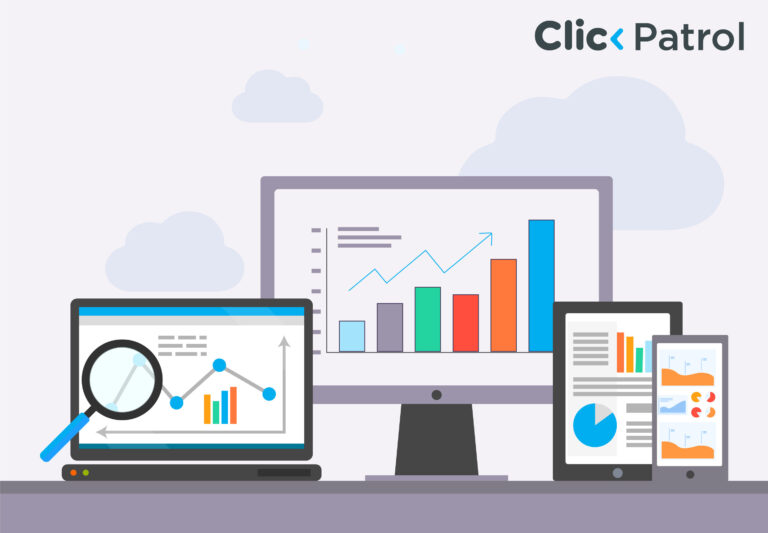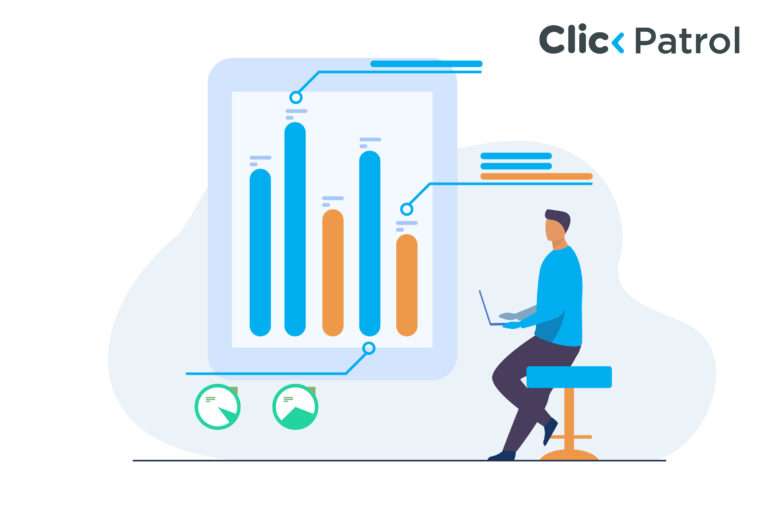
How To Manage Spending On Your PPC Campaigns
Abisola Tanzako | Nov 01, 2023

Table of Contents
- What is the daily budget for Ads?
- What causes Ad budget overspend?
- Top 5 ways to manage spending on your PPC campaigns
- 1. Create an accurate budget at the beginning of each campaign month
- 2. Monitor your campaigns daily.
- 3. Use automated bidding strategies to control budgets
- 4. Optimize landing pages for better conversion rates
- 5. Leverage negative keywords to exclude irrelevant traffic.
- Conclusion
How do you manage spending on your PPC campaigns?
Running digital advertising for your business is ideal if you want to grow and increase your visibility and sales. However, you may also feel frustrated if campaigns eat up your budget before seeing a return on your ad spend (ROAS).
This is called daily Google Ads budget overspending and often happens to companies new to digital advertising. Luckily for you, you can prevent this from happening by following the tips and tricks below.
What is the daily budget for Ads?
Your ads daily budget refers to the maximum amount an advertiser is willing to spend on their ads campaign in a day. Google averages your daily spending; some days, it’ll spend over that limit, while on other days, it spends next to nothing.
How budget works in ad campaigns
Google Ads’ daily budget is the amount spent daily on average for an ad campaign. Your pay will solely depend on your (CPC cost-per-click) rate. The daily budget is the approximate amount advertisers are comfortable spending each day over a month.
For instance, if an advertiser sets an average daily budget of $50, Google Ads will ensure they spend around $50 per day on their campaign. Note that Google Ads interprets the daily budget as an average over time rather than limiting spending to an exact amount daily.
So, some days, it may go as high as $100, while on other days, it only costs $10. Over a month, it’ll average roughly $50 spent daily. This way, advertisers will control their ad budget and ensure their campaign doesn’t exceed the allocated budget.
What causes Ad budget overspend?
Now that the Google Ads budgeting system has been explained and understood let’s look at the top three reasons businesses spend more than they budgeted for on Google Ads.
Google algorithm
Google Ads uses its algorithms to decide when to spend more or less money on ads. It analyzes data, like how many people are searching for your goods and services and how those people are likely to purchase them.
If, on certain days, Google sees higher clicks and conversions, it may allow overspending. Sometimes, it will spend more money than usual, up to double your daily advertising budget. This can be a problem because it can cause you to spend more money than you intended.
Below are two instances where Google increases your daily ad campaign spend:
Increase in search traffic
When search traffic increases, specific keywords can be relevant to your Google Ads campaign, which means more people will be actively searching for products or services like yours. This increased demand can increase competition among advertisers bidding on these keywords.
If your campaign is set up to maximize viewability and reach, Google Ads may show your ads more often. It does this to capture the growing search demand. As a result, your ads may generate more clicks, leading to a higher spend on your daily budget.
For example, let’s say you set a daily budget, but because of a sudden increase in search traffic, your ad receives more clicks than usual.
Google Ads will continue to serve your ads to meet growing demand. This may cause you to spend more than your budget.
Tip: By analyzing search traffic trends and adjusting your daily budget to match demand increases, you can ensure that your ads continue to be effective without exceeding budget limits.
Conversion Rate Variations
When your conversion rate fluctuates, it can affect the overall performance of your campaign and, ultimately, your budget.
Here’s how it works:
You set a daily budget of $100, and your ads perform well with a steady conversion rate. However, if your conversion rate increases dramatically, your ads will become more profitable, and Google Ads can serve them more frequently to capture increased conversion opportunities.
Higher conversion rates are usually a positive result. But it can also lead to overspending. As more people convert, your ad spend will increase as Google Ads tries to capitalize on your campaign’s success. If you don’t closely monitor your search, social, and shopping campaigns, your daily budget could be depleted earlier in the day than expected, leading to overspending.
Tip: Track and analyze your campaign performance. If you see a significant increase in conversions affecting your daily budget, adjust your daily budget to stay in control of your spending. And optimize your campaign success while respecting the budget limits allocated to you.
Miscalculating your budget
Every advertising campaign starts with a set budget, or at least it should. If you budget wrong, you will pay the price. The root cause of overspending is most likely due to poor everyday budget management and poor budget planning accumulated throughout the month.
For instance, if the cause of overspending is a highly increased budget to compensate for low spending at the beginning of the month, then increasing your budget by more than 20% at a time can cause fluctuations in your strategies.
Tip: Use historical data and consider your business and advertising goals when setting your advertising budget.
Mid-month campaign changes
Found inspiration to improve your mid-month ad campaign performance? Please don’t do it because Google has changed how advertising budgets are calculated and charged.
Instead of viewing the last 30 days, it now considers the current month. So, if you change your budget mid-month, Google will start calculating it again from the beginning of the month.
Top 5 ways to manage spending on your PPC campaigns
Here are some ways to avoid overspending your daily Google Ads budget.
1. Create an accurate budget at the beginning of each campaign month
If you’ve been running a campaign for a while, you have access to historical performance data that can guide your bidding strategy. Use this information and your business goals to set a realistic monthly budget.
It’s straightforward; Google works on a monthly budget schedule. So, take the amount you want to spend each month and divide it by 30.4 (the average number of days per month) to get the daily budget number to put in your account.
Once you have this daily number, assign it to each campaign based on your strategy and priorities. Then, you will be okay with monthly overspending.
2. Monitor your campaigns daily.
To properly manage spending on your PPC campaigns, you must monitor them closely to see what is being consumed daily. Use this data to adjust your budget accordingly to optimize your ad spend.
For example, if you notice your campaign is underperforming, you can increase your daily budget to compensate. Then, when you see your campaign is spending too much, you can reduce your daily costs to avoid running out of budget.
3. Use automated bidding strategies to control budgets
If you want to “Set it and forget it, ” you need automation to reduce costs. You can create campaigns using automated bidding strategies with maximum budgets. This way, your ads will spend within your desired range and stop showing when you reach your maximum budget.
Try to structure your campaigns so that search engines don’t label them as ‘limited by budget.’ This may involve having a structure with fewer campaigns if you have a lower budget to maintain a higher level of data flowing through the account.
4. Optimize landing pages for better conversion rates
Overspending can happen when you run monthly campaigns with Google Ads. However, you can maximize your campaign by optimizing your landing page to increase conversions and sales.
This way, you’ll increase your return on investment (ROI) and return on ad spend (ROAS).
Tip: Continue improving your ad campaigns to improve your Quality Score by using relevant keywords, optimized landing pages, and ad extensions to provide additional information. Supplements can help searchers make conversion decisions.
5. Leverage negative keywords to exclude irrelevant traffic.
If you plan to spend less on Google Ads on certain days, ensure your spending is targeted at the right audiences. Adding negative keywords to your campaign can save advertising dollars on clickers who will never convert.
For example, if you sell air mattresses, you want to avoid your ad appearing in pillow searches. So, you need to add the phrase (mattress topper) to your negative keyword list.
Conclusion
Note that you don’t have to worry too much about going over your monthly budget.
While going over your daily Google Ads budget may seem problematic, Google does a great job averaging your ad spend so you stay within the budget.
However, if you don’t like the way it distributes your coins daily, you can take some steps to control it. Consider learning about ad scripts to avoid overspending and manage your budget. If you lack the time or resources to implement these strategies, consider working with a team of experts who live and breathe this every day.

